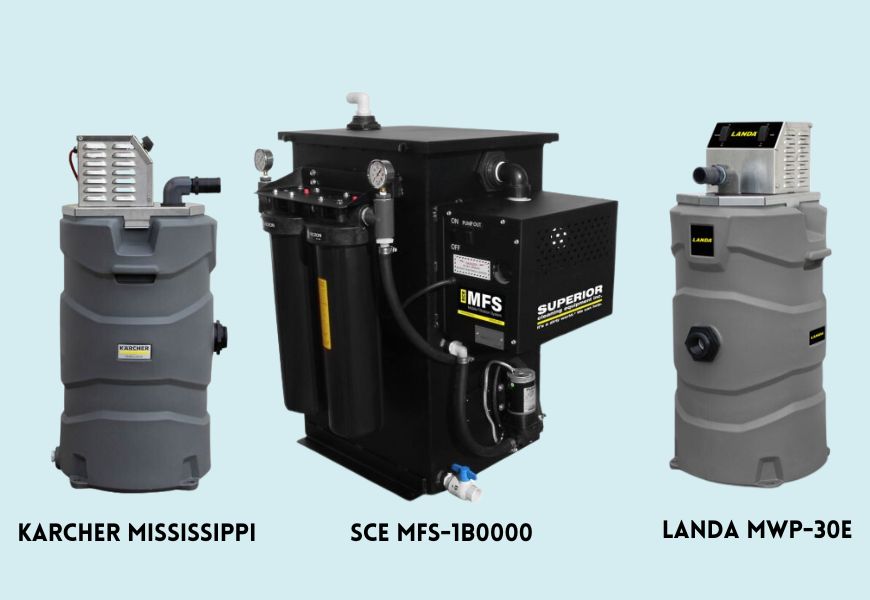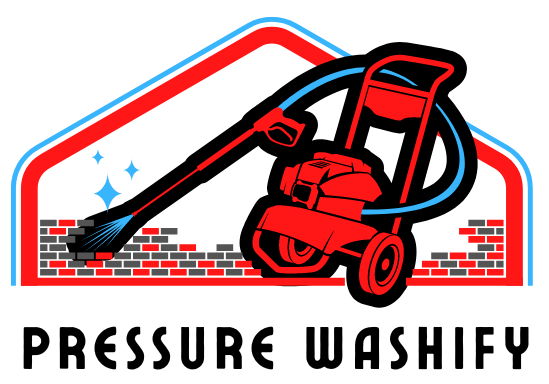Affiliate Disclaimer: This post may contain affiliate links, meaning we get a commission if you decide to make a purchase through our links, at no extra cost to you.
Water, the life-sustaining elixir, is a priceless resource that connects us all. Water is essential to our daily lives. It quenches our thirst and nourishes our crops. It is important to both conserve and appreciate water. If you own a pressure washer, you must have wondered do pressure washers use a lot of water.
While pressure washing is undeniably efficient, how does it affect our water usage?
Do Pressure Washers Save Water?
Pressure washers, on average, use 70–80% less water than a typical garden hose.
This is because the nozzles of pressure washers have extremely small openings. High pressure is used to drive water through those nozzles, improving its cleaning power.
On average 2 to 4 GPM of water is used by pressure washers.
The following table compares the water usage of several GPM pressure washers compared to a garden hose:
| Device | GPM (Gallons per Minute) | Water Consumption in 10 Minutes (Gallons) | Water Consumption in 30 Minutes (Gallons) |
|---|---|---|---|
| Garden Hose | 7-10 | 70-100 | 210-300 |
| 2 GPM Pressure Washer | 2 | 20 | 60 |
| 4 GPM Pressure Washer | 4 | 40 | 120 |
Factors That Affect Water Consumption of Pressure Washers
Pounds per Square Inch (PSI)
The force exerted by the water flowing out of the pressure washer is measured in PSI. A higher PSI indicates more water pressure, which may result in quicker cleaning.
However, higher pressure equals faster and more efficient cleaning, so striking a balance between water usage and cleaning efficiency is critical.
Gallons Per Minute (GPM)
As previously stated, GPM is a measurement of the pressure washer’s water flow rate.
It is essential to choose a pressure washer that meets your needs without wasting water. This is because different models have different GPM ratings.
Models and Settings
The model of your pressure washer and the pressure levels you select might also have an impact on water usage. Some versions are intended to be more water-efficient, while others may be more focused on cleaning power.
Furthermore, altering the pressure settings according to the cleaning work at hand can help you save water. Using a lower pressure setting, for example, for lighter cleaning jobs, such as car washing, can help you save water.
Increase pressure for harder tasks, such as washing concrete. This will use more water, but the job will be done better.
Benefits of Pressure Washers in Water Conservation
Water Conservation
As previously stated, pressure washers can use up to 80% less water than a standard garden hose.
Utilizing a pressure washer for cleaning helps conserve water. This is especially important in areas facing water shortages or droughts.
Water Bill Savings
Using less water benefits both the environment and your money. By using pressure washers for cleaning, homeowners and businesses can possibly save money on their water bills.
With utility costs rising, reducing your water consumption can make a considerable difference in your monthly expenses.
Tips for Minimizing Water Usage with Pressure Washers
Use a pressure washer with a low GPM
As previously stated, a lower GPM value equals less water usage. When selecting a pressure washer, choose one with a lower GPM rating to save water.
Remember that a lower GPM may require a longer cleaning time. It is important to find a balance that works for your personal needs.

Read our review of the Ryobi 1800 PSI, the best low GPM pressure washer available in the market for home users.
Change the Pressure Settings According to the Job
You may save water by using the right pressure level for each cleaning activity. Use a lower-pressure setting for lightweight cleaning activities, such as washing your car or outdoor furniture.
A greater pressure setting may be required for more difficult operations, such as cleaning concrete or eliminating tenacious stains. You can prevent using more water than necessary for each task by adjusting the pressure settings accordingly.
Making Use of Hot Water
Using hot water in a pressure washer can save a lot of water while still providing good cleaning results. When opposed to cold water, hot water is more effective at breaking down and removing dirt, grease, and filth.
Hot water enables a pressure washer to clean more quickly and efficiently. This means that less water is used for a given job.
Hot water pressure washers need lower pressure settings to clean as effectively as cold water pressure washers. This helps conserve water.
Make use of Water Reclamation Systems
Incorporating a water reclamation system into your pressure washing equipment can help you save a lot of water. A water reclamation system collects, filters, and recycles pressure-washing water, allowing it to be reused for subsequent cleaning activities.
It also prevents wastewater from entering storm drains and polluting the environment. Furthermore, using a water reclamation system can be especially useful in locations with strict water usage rules or limited water supplies.
Invest in a water reclamation system. This will help save water and cut expenses. Moreover, it will encourage responsible and eco-friendly pressure-washing practices.

Pre-treat surfaces
Apply a cleaning solution or detergent to the surface before pressure washing. This will help loosen dirt and grime, making the cleaning process easier.
It will also reduce the amount of water required. We recommend using the pressure washer-safe Sun Joe SPX-HDC1G House and Deck All-Purpose Cleaner for excellent results.
Use a Consistent Technique
To achieve even and efficient cleaning, keep a consistent distance and angle while pressure washing.
The need for repeated passes can be avoided with this method, which also lowers water usage.
Cleaning Schedule
Minimize water evaporation and improve cleaning efficiency by scheduling pressure washing jobs during cooler hours of the day.
Alternatively, do the jobs when the sun is not directly overhead.
Maintain Your Pressure Washer on a Regular Basis
Proper pressure washer maintenance is critical to ensuring optimal performance and water usage.
- Check for leaks regularly.
- Clean the nozzles.
- Inspect the hoses.
Use Water Meters
Utilizing water meters while pressure washing is an effective way to monitor water usage and promote responsible water consumption.
By tracking the gallons per minute (GPM) used during pressure washing, homeowners and businesses can gain valuable insights into their water consumption patterns.
Furthermore, water meters can help detect leaks or malfunctions in pressure washer systems, ensuring that water is not being wasted unnecessarily.
Final Thoughts
We can reduce water usage by up to 80% by choosing pressure washers instead of traditional garden hoses. This can make a significant difference to our water bills and the environment.
As responsible citizens and businesses, we must embrace water-efficient practices and technologies like pressure washing to minimize our ecological footprint.
Investing in water reclamation systems is a game-changer for pressure-washing businesses. They can capture, filter, and reuse water on-site. This further enhances their commitment to sustainability.
FAQs
How does the water efficiency of electric pressure washers compare to gas-powered models?
Electric pressure washers typically have lower flow rates and consume less water than their gas-powered counterparts. Additionally, electric models often feature automatic shut-off systems that conserve water by minimizing idle time.
What role does nozzle selection play in water usage and cleaning performance?
Nozzles with narrower spray angles and higher pressure settings can deliver more concentrated streams of water, leading to efficient cleaning with reduced water consumption. Conversely, using wide-angle nozzles at lower pressure settings disperses water over a larger area, potentially increasing water usage.
Can the use of recycled or reclaimed water be integrated with pressure washing to reduce water consumption?
Yes, incorporating recycled or reclaimed water sources, such as rainwater harvesting systems or greywater recycling systems, can significantly reduce the overall water consumption of pressure washing operations.
However, it’s essential to ensure that the water quality meets the requirements for effective cleaning and does not cause damage to equipment or surfaces.
How does the type of surface being cleaned impact water usage with a pressure washer?
The porosity and condition of the surface being cleaned can affect water consumption. Porous surfaces may require more water to penetrate and dislodge dirt and grime, while smoother surfaces may need less water for effective cleaning. Additionally, heavily soiled surfaces may necessitate more water to achieve satisfactory results.










